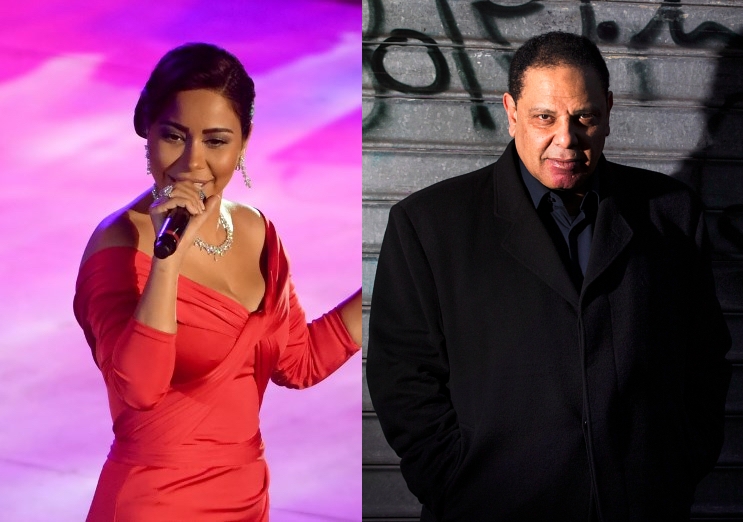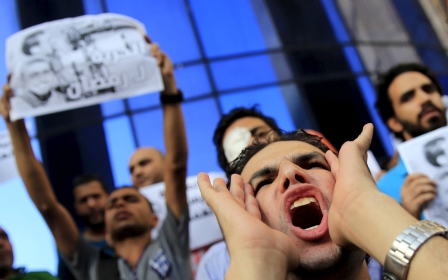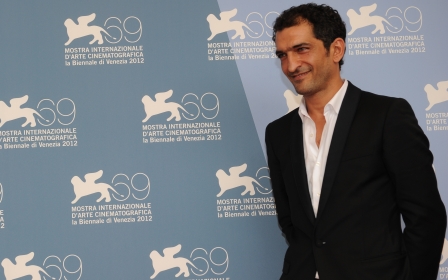Singer and novelist sued in Egypt as country tightens grip on free speech

A popular singer and a renowned novelist have this week fallen foul of Egyptian authorities' crackdown on free speech, in yet further signs of the rapidly deteriorating human rights situation in the country.
Sherine Abdel Wahab, the most popular Middle Eastern female singer on Spotify, has been banned from singing in Egypt and could face jail time for allegedly questioning freedom of speech in her country.
Meanwhile, Alaa al-Aswany, whose novels have been translated into 37 languages, said he is to stand before a military court over his writings.
Abdel Wahab's legal issues surround a concert she sang at in Bahrain on 14 March where she is alleged to have said: “Now I can speak freely, those who speak in Egypt get jailed."
The statement, according to pro-government lawyer Samir Sabri, who filed a legal complaint on Thursday, amounts to “insulting Egypt, spreading false news and inviting suspicious human rights organisations to intervene in the country’s affairs”.
As of Thursday, no videos seem to be found online showing the singer making the alleged statement.
The Syndicate of Musicians announced on Thursday it would bar Abdel Wahab from performing in Egypt, and that she would attend a disciplinary meeting on 27 March to investigate the claims.
In her first response on the incident, Abdel Wahab said her remarks were "taken out of context" and that "she rejects attempts to question her loyalty and love for Egypt."
Previously, Abdel Wahab was sentenced in February 2018 to six months in jail for satirically suggesting at a concert in the United Arab Emirates that drinking from the Nile River could be detrimental to health. The same lawyer, Sabri, was behind the lawsuit.
She was, however, acquitted on appeal in May last year.
The charismatic former judge in the Arabic version of The Voice, Abdel Wahab could again face a jail sentence.
Sabri, known for filing “indecency” and “insulting Egypt” lawsuits against public figures, said in his lawsuit the singer “gave [human rights organisations] talking points to use and disseminate with the purpose of offending the Egyptian state”.
He said, according to local media, that the main eyewitness to the alleged incident is the wife of late Egyptian prime minister Aziz Sedki, Leila Sioufi, who informed authorities about the incident.
Sabri demanded a swift investigation into the incident, and referred Abdel Wahab to “urgent criminal prosecution”.
'My only crime is being an author'
On Tuesday, renowned Egyptian novelist Aswany said he was facing a military trial in his country over his writings.
Aswany, a guest columnist for the German media outlet Deutsche Welle’s Arabic website, said on Tuesday that military prosecutors have accused him of insulting the head of state in his most recent novel and writings.
"My only crime is being an author, expressing my opinion, and criticising those who deserve it, even if it's [President Abdel Fattah] el-Sisi," Aswany said in his latest column for DW.
Aswany said the Sisi government has banned his books and his appearances on national television.
Despite being an opponent of former president Mohamed Morsi and the Muslim Brotherhood from which the deposed leader hailed, Aswany said freedom of expression under Morsi was allowed because the spirit of the 2011 revolution was “still strong”.
Aswany is one of Egypt’s most prominent writers. His most famous novel is The Yacoubian Building, and his latest, The Republic As If, was published in 2018 by the Lebanese publisher Dar al-Adab.
The novelist was not a critic of Sisi at the beginning of his rule. He welcomed Sisi's military coup against Morsi in 2013 and was famously criticised publicly for his support for the Rabaa Massacre that killed nearly 1,000 Morsi supporters.
Sisi, president since 2014, has overseen what human rights groups have described as “the worst human rights crisis” the country has seen in its modern history. Nearly 60,000 political prisoners languish in jails, according to Human Rights Watch.
On Tuesday, Egypt’s top media regulatory body was given the power, without a court order, to block websites and social media accounts for publishing “fake news” and to impose penalties of up to 250,000 Egyptian pounds ($14,400).
Middle East Eye propose une couverture et une analyse indépendantes et incomparables du Moyen-Orient, de l’Afrique du Nord et d’autres régions du monde. Pour en savoir plus sur la reprise de ce contenu et les frais qui s’appliquent, veuillez remplir ce formulaire [en anglais]. Pour en savoir plus sur MEE, cliquez ici [en anglais].





